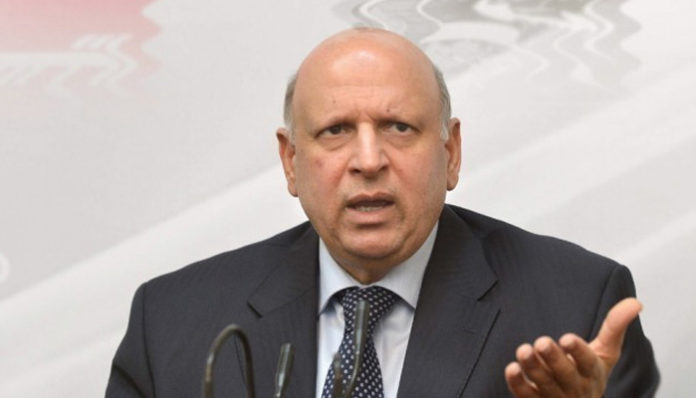- ‘Govt vows to transform Pakistan into a business-friendly country by devising conducive policies based on solid research’
LAHORE: Punjab Governor Chaudhry Muhammad Sarwar said on Tuesday development of small and medium enterprises (SMEs) is among the top priorities of the incumbent government, as the sector holds the potential of not only creating employment opportunities but also of alleviating poverty from the country.
Addressing the inaugural session of a two-day 3rd SME Conference organised by Small and Medium Enterprises Development Authority (SMEDA) in collaboration with University of Management and Technology (UMT) at Alhamra, the governor acknowledged the significance of SMEs and vowed to transform Pakistan into a ‘business friendly country’ by devising conducive policies based on solid research.
The governor mentioned that the government had embarked upon an ambitious plan to boost the economy by making interventions in key areas of economic importance with a special focus on SMEs.
“SMEs have a pervasive presence across various economic sectors, and are an integral part of the present government’s economic development strategy,” he said. “Since Pakistan has been seeking to strengthen its economic position at global level, the implementation of research-based policymaking across the SME sector has become a fundamental necessity. I see that we have taken the first step towards developing this research culture in Pakistan through this conference.”
Sarwar on the occasion was glad to note that the 3rd SME Conference was planned to avail true and maximum benefits of research to meet the challenges faced by the SME sector.
He hoped that the conference would bring SMEs, business development organisations and researchers on one platform with an aim to bridge the industry-academia gap to determine the true value of research and translate it into tangible action.
The Punjab governor termed the thematic areas of the conference as quite realistic and logical, which included SME policy, entrepreneurship and startup ecosystem in Pakistan, sustainable development, China Pak Economic Corridor (CPEC) and opportunities for SMEs, and the CPEC and regional integration.
He was of the view that these were very important areas which needed immediate attention, and hoped that the panel discussions, research papers presentation on the aforementioned themes and the subsequent recommendations emerging from them be equally beneficial for all stakeholders, including researchers and policymakers.
In his welcome address, SMEDA Chief Executive Officer Sher Ayub appreciated all partners and organisers including University of Management and Technology (UMT), Association of Management Development Institutions of Pakistan (AMDIP), IBA-Sukkur University and Institute of Business Management (IoBM) Karachi for collaborating with SMEDA in its endeavours.
“The conference will help highlight the importance of research to identify the potential of SMEs for inclusive and sustainable economic growth in the country,” he said. “After the success of the first and second National SME Conferences held in 2016 and 2017 respectively, the 3rd SME Conference was a significant event with researchers and representatives from other countries, including TJPU University, China, and NamSeoul University, South Korea, were sharing their experiences.”
He said the conference was an important step towards providing the necessary impetus to the SME sector so as to create an environment where an extensive research base could be developed, which would subsequently help encourage policymakers and professionals to take development initiatives with a broad vision and result-oriented mission.
“It will also help us ensure that the SMEs were facilitated though evidence-based policies,” he maintained.
Sher Ayub asserted that SMEDA, being part of the Ministry of Industries and Production, had played an important role in facilitating economic growth by introducing SME policy formulation, sector development strategies, firm level assistance to SMEs, useful feasibility studies and potential district profiles for cluster development.
He thanked the organizing and co-organizing teams of the conference and also acknowledged the participation of international organizations from China, Japan, South Korea, Ireland and Bulgaria.
The inaugural session was followed by three working sessions on the first day of the conference, while three more sessions would be held today (Wednesday) bearing about 12 research papers in total.
The inaugural session was also addressed by UMT Rector Dr Muhammad Aslam, International Finance Corporation (IFC) Senior Private Sector Specialist Charles Schneider, and Dr Sean K S Shin, Dean of the Global Education Institute, NAMSEOUL University, South Korea.
A large number of SMEs, economic experts and research students attended the conference, prominent amongst whom were Rehmatullah Javaid, Siddiqur Rehman Rana, Azmat Javaid, Dr Fuad Hashim Rabbani, Javaid Khattak, Ashfaq Ahmad, Ahmad Mansoor, Nadia Jahangir Sethi and Hasnain Javaid.




